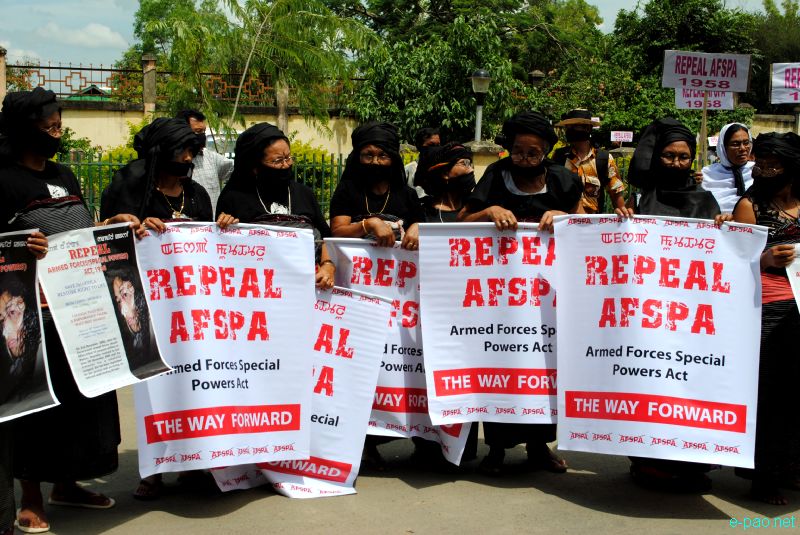The Act, which gives sweeping powers to security forces, was partially withdrawn from three of the state’s nine districts, but would remain in force in the areas bordering Myanmar, the MHA order said.

Image Courtesy: Amarjit Longjam
New Delhi: The controversial Armed Forces Special Powers Act (AFSPA) was partially removed from Arunachal Pradesh, 32 years after it was imposed, a Ministry of Home Affairs (MHA) order said on Tuesday.
The Act, which gives sweeping powers to security forces, was partially withdrawn from three of the state’s nine districts, but would remain in force in the areas bordering Myanmar, the MHA order said.
The state, which was formed on February 20, 1987, had inherited the controversial AFSPA enacted by Parliament in 1958 and applied to the entire State of Assam and the Union Territory of Manipur.
After Arunachal Pradesh, Meghalaya, Mizoram and Nagaland came into being, the Act was appropriately adapted to apply to these states as well.
The Justice B P Jeevan Reddy committee had recommended scrapping of the AFSPA from the state.
The police station areas from where the AFSPA has been withdrawn are Balemu and Bhalukpong police stations in West Kameng district, Seijosa police station in East Kameng district and Balijan police station in Papumpare district.
AFSPA is declared in areas where armed forces are required to operate in aid to civil authorities. However, for AFSPA to become valid, an area needs to be declared “disturbed” either by the Central or the state government under Section 3 of the Act.
As per the MHA’s notification on Tuesday, the four police station areas in Arunachal Pradesh which were declared “disturbed areas” under AFSPA are no longer under the purview of the special law.
Arunachal Pradesh became a state on February 20, 1987, and since its inception, the controversial AFSPA – enacted by Parliament in 1958 – was applied to the certain parts of the state. In 2018, MHA had reduced AFPSA from 16 police stations areas bordering Assam to eight police stations, besides Tirap, Changlang and Longding districts, adjoining Myanmar.
One of the reasons cited by the Centre for imposing AFSPA in Arunachal’s Tirap, Changlang and Longding – all bordering Assam – and 16 other police station areas was the extortion and killing of security forces by the National Socialist Council of Nagaland (Isak-Muivah) and NSCN-K. While NSCN-IM signed a framework agreement with the government, NSCN-K capabilities have been depleted after the death of its leader SS Khaplang, an official said.
A review of the law and order situation in Arunachal Pradesh’s six districts was undertaken before the March 31 deadline for the validity of the “disturbed area” designation under the AFSPA.
In March last year, the AFSPA was removed completely from Meghalaya following improvement in the security situation.
The AFSPA is imposed in areas where armed forces are required to operate in aid to civil authorities. For the AFSPA to become valid, an area, however, needs to be declared disturbed either by the Central or the state government under section 3 of the 1958 Act.
Some parts of Arunachal Pradesh has the presence of banned militant outfits such as NSCN, ULFA and NDFB, another official said.
Under the Act, the security forces can arrest anyone or carry out searches on any premises.
With inputs from agencies.